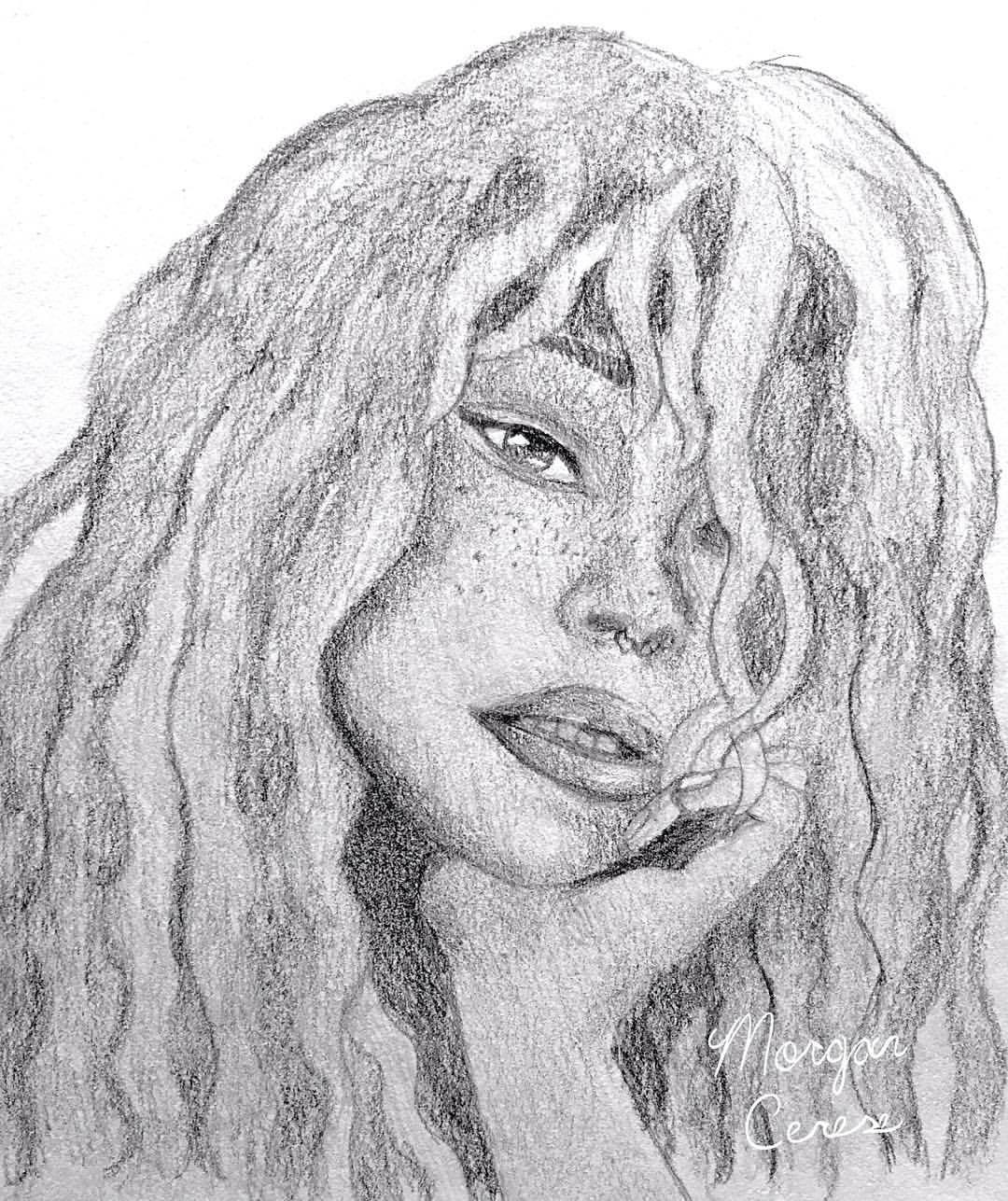
Talent vs. Skill - Why I Think Everyone Can Draw
Share
Artists hear it from non-artists all the time: “Wow you’re so talented! I wish I could draw. My drawings look horrible! The best I can do are deformed stick figures.”
I definitely understand that this is meant to be a compliment so my usual response is “Thank you! Everyone can draw; it just takes lots of practice. You can do it too!”
I feel that there’s a misconception that artists are naturally gifted. Non-artists are shocked to hear that I didn’t start drawing from a super young age. I wasn’t some child prodigy who painted hyper-realistic portraits at the age of 4.

One of the earliest drawings in my first sketchbook done at age 14
In my opinion, there’s a distinct difference between having a talent and having a skill.
A talented artist is what some would also call a prodigy. They are the ones who seem to have woken up one day and had this unbelievable level of mastery for art. I’d even lump those who learned how draw and paint at an abnormally fast rate into the talented category. It’s almost as if they’d been an artist in a past life and they just needed to remember how to create art.
A skilled artist is one who spent years and even decades practicing. They did not learn at an extreme rate; they “level up” at more normal/moderate pace. Most of the artists I’ve met, including myself, fall into this category. Just like every other child, these future artists drew stick figures of their friends next to a basic-looking tree with a yellow sun in the top corner of the page. Then, at whatever age they developed a real interest in art, they started practicing more until their skill exceeded childlike levels.

Most skilled artists agree that anyone can draw with enough practice. Those who started seriously practicing in elementary school would already have years of experience by the time they reach high school. That was the case with my best friend who started teaching me when I was in 9th grade.
When I took my first art class in high school, many of the students choose the elective because they thought it would be an “easy A.” When confronted with a simple introductory drawing exercise on the first day, many of my classmates complained that they “can’t draw.”
“Are you able to hold a pencil and write your name? Then congratulations, you’re able to draw.”-Dr. Lori Quintiliani, my high school art teacher
The purpose of the exercise was to assess everyone’s skill level. It was evident who had been practicing art (even just a little) and who hadn’t attempted art since elementary school. I was recommended to be put in the Art II class simply because I already had a basic understanding of shape and proportions from my practice; I just needed even more practice and guidance.

After a few months of practice, done at age 15. There's improvement but the chin is incorrect and one foot is missing.
I remember a classmate sitting next to me said that I must have a “God-given talent.” Instead of verbally correcting the notion, I just showed her my sketchbook. The drawings at the very beginning looked similar to what she had just attempted in the exercise. I explained that I had just started practicing a few months ago and encouraged her to do the same.
I practiced drawing in every single class period instead of listening to the lecture. If I finished a quiz or test early, I always ended up doodling some random foolishness on the back (which kind of amused my teachers).

I also practiced drawing during summer vacation. I read countless “how to draw” books and followed Mark Crilley’s instructional videos on Youtube.
It’s been almost 10 years since I first started practicing but I don’t even consider myself to have “10 years of experience.” There have been gaps in my practice. The longest amount of time I’ve spent without doing a single sketch was about 2 years. The second longest gap was 8 months.
Each time I picked up the pencil again I could see that I’d “lost some of my skill” and I had relearn some things.

Many people who wish they “could” draw actually just don’t want to invest hundreds of thousands of hours developing a skill in art...and that’s okay! Those of us who chose to practice did so because we love creating art and saw it as a priority.

Something I recently started doing is taking my very first sketchbook with me to in-person shows. It serves as encouragement to both insecure adults and artsy kids to keep practicing. Everyone seems to need a reminder that we all start somewhere. Also, that sketchbook keeps me humble amongst the constant compliments.
So here’s a takeaway…
Skilled Artists:
Try not to get offended when someone calls you “talented” instead of “skilled.” I see this in “relatable” art memes on social media and the energy is a bit negative. People genuinely don’t see the difference; they just see some amazing art you made and don’t know how else to compliment you.
Non-artists who genuinely want to create art:
If you really feel that you cannot draw, just practice! Every skilled artist was at your level at some point. No need to put yourself down to compliment an artist. Believe in yourself more and go for it!
